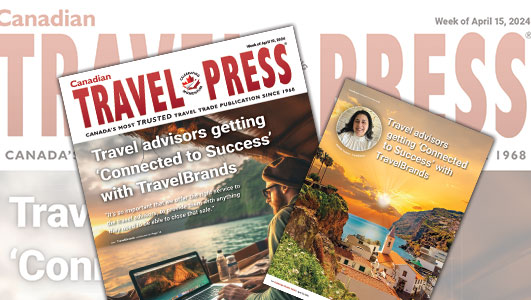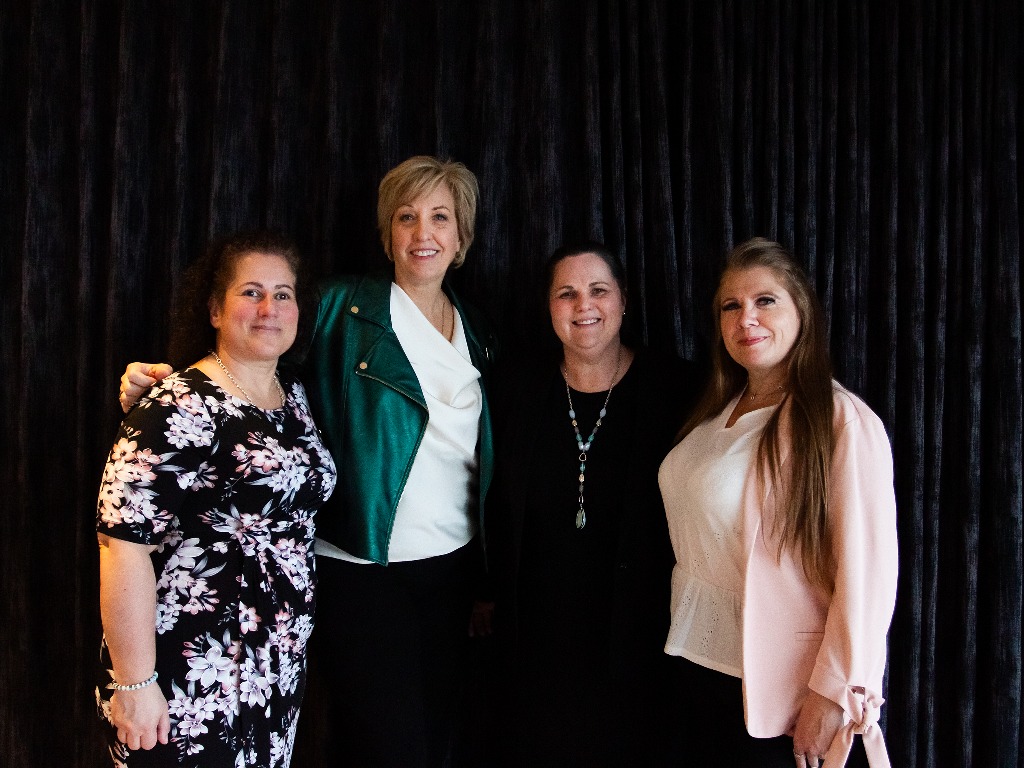COVID-19 Update: #TogetherinTravel, AC, Porter

Travel & Tourism Council (WTTC) launched a new marketing campaign, #TogetherInTravel, aimed at galvanizing the global travel and tourism community and showing how the sector is a vital part of our zest for life.
The campaign encourages travellers from around the world to share the hashtag #TogetherInTravel along with a video simultaneously uniting everyone in solidarity at the same moment.
The marketing campaign comprises three key elements:
- A highly visual and emotive video (https://we.tl/t-fn2UIxLe6N ).
- A hashtag, #TogetherInTravel, to stimulate the conversation across social platforms.
- A microsite, TogetherInTravel.com, to host the video and user-generated content and stories.
WTTC has developed the campaign in conjunction with one of its Members, marketing and communications firm MMGY Hills Balfour.
Commenting on the initiatives launch, Gloria Guevara, president & CEO of WTTC, said: “Dreaming is part of our zest for life and our new campaign encourages thoughts of the brighter days ahead. Travel & Tourism is a critical sector to the global economy, accounting for one in four of all new jobs worldwide and contributing 10.3% to GDP.”
Guevara continued: “Our sector touches everyone. It builds communities, reduces poverty in the world and improves the social impact of everyday lives. Yet we are uniquely exposed at this time due to Covid-19.”
She said that: “The concept for the #TogetherInTravel campaign was borne out of a desire to rally everyone who is passionate about travel, to unify those who are working hard to rebuild the sector and to spread a message of solidarity that we are one global community, and one where travel brings us closer, at the right time.”
And Guevara concluded: “Our message is that everyone can still stay inspired with future travel ideas and bookings – and in the mean-time be part of a virtual space for sharing, connecting, and collectively inspiring.”
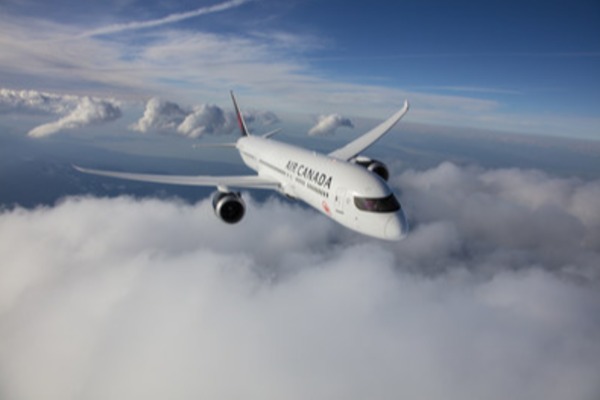
Air Canada Makes Face Coverings Mandatory
Responding to Transport Canada’s directive late last week Air Canada is making its recommended face-covering practice mandatory as an additional safeguard for its customers and crew.
The requirement will apply to customers at various points in Canadian airports, during the boarding process and during flight as may be directed by Air Canada staff where social distancing is not possible.
The requirement, effective today (April 20), follows the Minister of Transport’s directive that requires travellers to wear protective face-coverings at various stages of their air travel journey.
And pursuant to the Ministerial Directive travellers will be required to show that they have a suitable face covering prior to boarding Air Canada flights.
Travellers who do not have their own face-covering will be provided with a suitable mask at security by CATSA.
Since early April, Air Canada has been strongly recommending that all customers wear a face-covering over their mouth and noses while onboard its flights following revised recommendations by the Public Health Agency of Canada.
With the Ministerial Directive, customers on all itineraries must now wear such protection at check-in, at time of boarding, and upon entering the aircraft where social distancing is not possible.
Customers will be asked to lower their masks to facilitate full ID checks as required by Canadian regulations at check-in.
While on board, customers will be required to wear their face coverings, in accordance with the Ministerial Directive and in accordance with the directions from the cabin crew.
Customers may bring their own face covering which may include a cloth mask, scarf or similar item.
Go to the PHAC website (https://www.canada.ca/en/public-health.html) for examples of recommended non-medical coverings. Critical medical-grade masks will continue to be strictly reserved for frontline workers.
As well, Air Canada has implemented social (physical) distancing where possible during boarding and where feasible, on-board its aircraft, with as few people sitting next to one another as possible.
The airline also recommends customers check-in online or via the Air Canada App prior to arriving at airports to minimize social contact at airport check-in areas.
For more on Air Canada’s preventative measures, go to: https://www.aircanada.com/ca/en/aco/home/book/travel-news-and-updates/2020/covid-19-preventive-measures.html
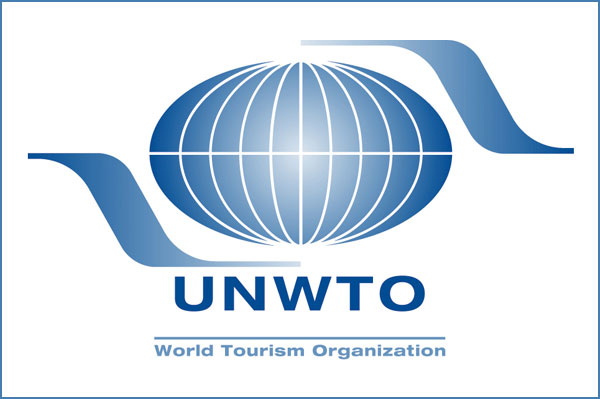
Going Beyond Words
The Global Tourism Crisis Committee has united behind the World Tourism Organization’s rallying cry for governments to “go beyond words” and begin taking decisive action to safeguard the millions of jobs under threat as a result of the COVID-19 pandemic.
The Crisis Committee was convened by the World Tourism Organization (UNWTO) in response to COVID-19. With tourism among the worst affected of all major economic sectors, the United Nations specialized agency for tourism also warns of the social and development toll the economic impact might have.
UNWTO is taking the lead in ensuring governments do all they can to safeguard livelihoods and shield the most vulnerable members of society.
It is urging members to increase pressure on world leaders to rethink tax policies and employment policies relating to tourism and to help make sure businesses survive to help drive wider recovery efforts.
The call to action comes as decision makers come under mounting pressure to take concrete steps to help combat COVID-19. Drawing up financial and economic responses was the central focus of the Spring Meetings of the International Monetary Fund and the World Bank last week, while the European Commission has been enhancing political cooperation within the European Union.
Scale Of Disruption
And in a new report, the UNWTO reveals the scale of disruption in the global tourism industry caused by travel restrictions imposed as a result of the COVID-19 pandemic.
The report reveals that almost all global destinations have imposed restrictions on travel since January 2020, including complete bans on all travel as they work to contain the pandemic.
Over recent years, as the United Nations specialized agency for tourism, UNWTO has been regularly monitoring travel facilitation and observing a continuous trend towards more openness.
COVID-19 has dramatically interrupted this.
According to research carried out for the new report, as of 6 April, 96% of all worldwide destinations have introduced travel restrictions in response to the pandemic.
Around 90 destinations have completely or partially closed their borders to tourists, while a further 44 are closed to certain tourists depending on country of origin.
UNWTO secretary-general, Zurab Pololikashvili said: “COVID-19 has impacted travel and tourism like no other event before in history. Governments have put public health first and introduced full or partial restrictions on travel. With tourism suspended, the benefits the sector brings are under threat: millions of jobs could be lost, and progress made in the fields of equality and sustainable economic growth could be rolled back. UNWTO therefore calls on governments to continuously review travel restrictions and ease or lift them as soon as it is safe to do so.”
The UNWTO global review shows that the global regions are largely consistent in their response to COVID-19.
In Africa, Asia and the Pacific and the Middle East, 100% of destinations have adopted COVID-19-related restrictions since January 2020.
In the Americas, 92% of destinations have taken similar steps, while in Europe, the proportion is 93% (as of 6 April).
The report also identifies four key types of restrictive measures that include:
- Complete or partial closure of borders to tourists.
- Destination-specific travel restrictions (“Passengers who have transited or been in x are not allowed to enter x”).
- The total or partial suspension of flights.
- Different measures, including requirements for quarantine or self-isolation, medical certificates, invalidation or suspension of visa issuances etc.
The report notes that in many instances, destinations have already adjusted their restrictive measures as the situation has evolved. UNWTO will continue to regularly track and analyze the evolution of travel restrictions, in an effort to effectively support the responsible but also timely recovery of the tourism sector.
Governments have an opportunity to recognize tourism’s unique ability to not only provide employment but to drive equality and inclusivity.
UNWTO secretary-general, Zurab Pololikashvili said: “This crisis has shown the strength of solidarity across borders. But nice words and gestures will not protect jobs or help the many millions of people whose lives are dependent on a thriving tourism sector. Governments have an opportunity to recognize tourism’s unique ability to not only provide employment but to drive equality and inclusivity. Our sector has proven its ability to bounce back and help societies recover. We ask that tourism is now given the right support to once again lead recovery efforts.”
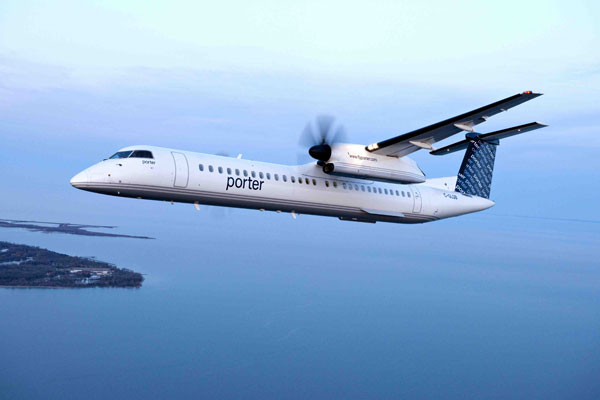
Porter Airlines To Use CEWS Program
Porter Airlines says it intends to access the federal government’s Canada Emergency Wage Subsidy (CEWS) to return hundreds of its team members to payroll.
The airline temporarily suspended all flights on March 21, to support the public health response to COVID-19, and as travel restrictions and personal movement limitations were increasing. The majority of Porter’s 1,500 team members received temporary layoff notices at that time, with a small group maintaining business continuity.
Michael Deluce, president and CEO, Porter Airlines, said: “Our team is showing outstanding dedication during a time when most are unable to work. As we look ahead to restarting flights when it is appropriate to do so, we are doing everything possible to stay connected with our people. The ability to use CEWS is one way of doing this. We appreciate the federal government’s support in this regard.”
Deluce added: “We have taken time to understand how CEWS works in practice and ensure that our team members have an option to choose what government income support program works best for them today and in the future.
Porter intends to welcome back team members to active roles as operations restart and rebuild to previous levels. In the meantime, anyone currently on temporary layoff who is returned to payroll via CEWS will remain at home on inactive status.
Certain team member health benefits have been maintained and paid for by the company during the temporary layoff period. This will continue, as will access to an Employee Assistance Program and other wellness programs.
Go to www.flyporter.com for more.
Airbnb Hosts Going Long
GlobalData says that Airbnb could lose significant portion of host community to long-term rental sites.
The data and analytics company reports that Airbnb hosts around the world have been losing the vast majority of their bookings in recent months, many of them need a reliable form of income sooner rather than later. A growing number of hosts have deleted their Airbnb listings to make way for month-to-month leasing.
Ralph Hollister, travel & tourism analyst at GlobalData, points out that: “Former Airbnb hosts are now listing their properties on longer term rental platforms. In the US, hosts are using listing services like San Francisco-based month-to-month rental service Kopa and Austin-based full-home medium-term rental platform Homads. The worry for Airbnb is that hosts may not return to the company when the impact of COVID-19 lessens.”
Jack Forbes – CEO of Kopa, observed that rental sites such as Airbnb have an average annual occupancy rate of under 50%, whereas sites like Kopa aim for an occupancy rate of 95%. This may explain the growing allure of long-term rental sites, as they offer higher levels of reliability and security.
Hollister continues: “According to GlobalData’s survey, 51% of Americans are extremely concerned about the COVID-19 outbreak, and 77% are expecting the situation to worsen in the next month. This may explain why hosts in the US have been so quick to state their loyalty elsewhere in order to boost their income.”
Usually, when a guest cancels on Airbnb, hosts receive some compensation, but Airbnb created a policy whereby hosts are forced to give refunds to guests cancelling due to the pandemic, leaving many hosts feeling betrayed by Airbnb as the company left them to fend for themselves.
Hollister concludes: “Due to a significant amount of financial loss mainly due to COVID-19, Airbnb received a US$1bn vote of confidence from major Silicon Valley investors. The new funds included US$5m towards special relief grants to head off growing dismay among hosts. However, this dismay may have already tipped many hosts over the edge, resulting in a permanent loss of loyal users for the company.”
Go to www.globaldata.com for more.

